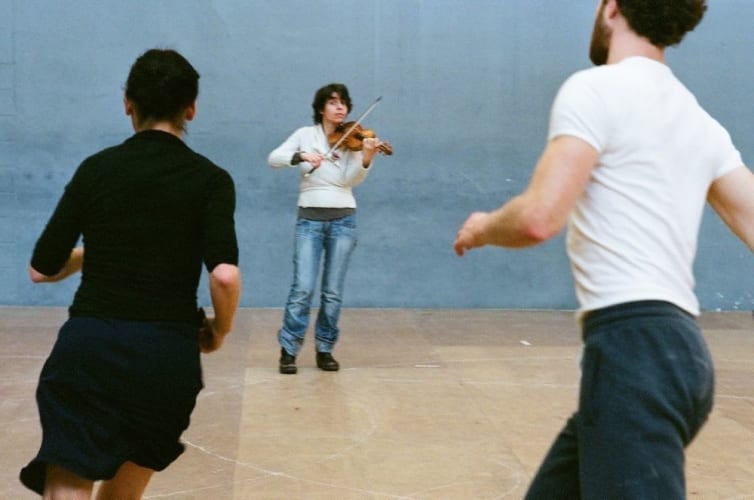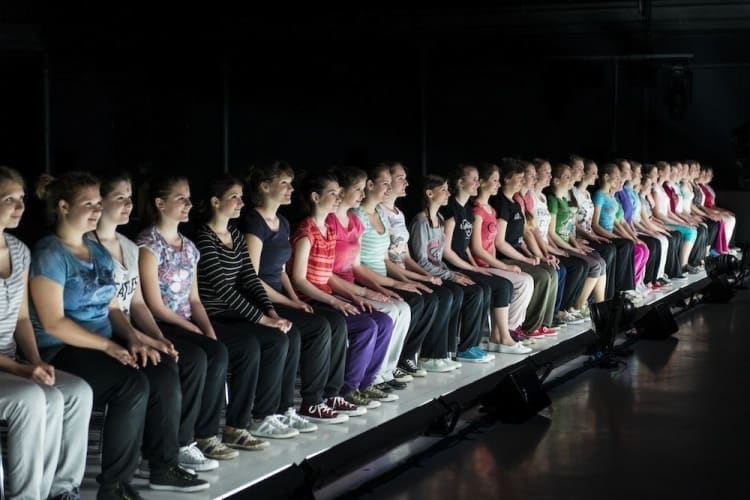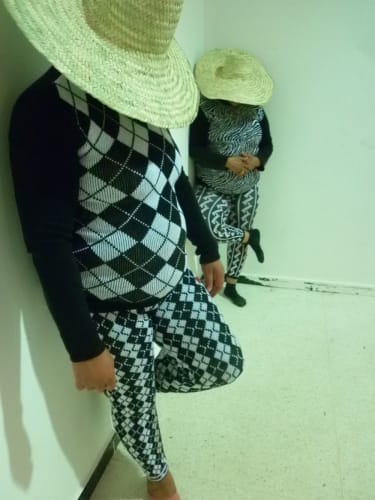Political and Planetary Ills with Lashings of Irony?
Since the financial crisis of 2008 introduced us all to the neo-liberal penchant for austerity (i.e. robbing the poor to give to the rich, not to mention an excuse to slash arts’ budgets) and raised questions about the nature of our Western democracies, no arts festival can hold its head high without offering audiences food for thought and debate on the subject of contemporary experience.
The KFDA has long been in the business of broaching those issues that touch us all in Europe and elsewhere. The 2013 programming is no exception and the work on offer this year is an apt illustration of the ways that (performing) artists across the globe are rising to the challenge of connecting with our no-longer-so-brave new world. We can share the creative impulses throbbing in Berlin, Brussels and Brazil, Marrakech and Moscow, Antwerp and Argentina, Tunis and Tokyo, far and beyond; these are very human and subtle artistic responses prompted by the experience of being alive in the crisis-ridden 21st century.
Opportunities to share these imaginative approaches in English can be found in the new work by the multi-talented Flemish theatre and visual artist Kris Verdonck. Based on the work of the early 20th century Russian dissident writer Daniil Harms, H, An Incident is billed as a ‘post-human opera’ with robotic instruments, an Icelandic choir, a collection of multimedia tools and Daniil Harms ‘in flesh and pixels’.
Verdonck is genuinely one of the most innovative and original artists working in Europe at present. His visual and conceptual scope never ceases to amaze as he deals with topical issues while avoiding all the clichés. His 2009 production for the Kunstenfestival, End, tackled climate change with humour, horror, irony and sympathy through a startling series of images, movement and text. I was, to fall into the vernacular, utterly gobsmacked.
What I like about Verdonck, as with so many artists performing at the KFDA, is that he raises questions, sows doubt, prods our conscience, without providing facile solutions or apportioning blame, showing us our own responsibility: to investigate and think before forming opinions. Somehow, he manages to find the right balance to both entice and shock.
H, An Incident, floating somewhere between reality and imagination, terror and the absurd, promises to ‘question the insidious effect our information society has on privacy and individual freedom’. The performance (also in the Kaaitheater) will be in English with French and Dutch surtitres.
Remaining in a Russian vein, though with contemporary political pith, Milo Rau, the Swiss founder of The International Institute of Political Murder, used non-actors—artists, politicians, clergy, citizens and lawyers—to stage a fictional tribunal inspired by the trial last year of Russian dissident female artists Pussy Riot, who are, of course, now serving jail sentences in the present-day gulags: will the world take up the cause of Pussy Riot the way it championed Solzhenitsyn?
The Moscow Trials aimed to discuss the mission and the limits of critical art and hangs a huge question mark over our definition of democracy. On the 21st May, Rau will be staging a lecture entitled The Moscow Trials: A Talk in English. There are some crucial questions being raised at present about the role of the arts and the stifling of dissent. Are we really still living in democracies? What does ‘post-democracy’ actually mean? Who owns the Media? Are they telling us the truth? Is art the only place where we can expect truth and open debate?
This is a necessary investigation at a time when governments are returning the arts to the realm of private patronage. The Cameron government is a prime example of this trend, though arts funding in the UK has been on a slippery slope since the Thatcherite report on the arts, The Glory in the Garden, in the ‘80s. Corporate sponsorship of the arts is an exercise in public relations for big business and is as antithetical to artistic freedom as a Russian oligarchy. Rau’s ‘lecture’ which takes place in the Beursschouwburg—this year’s festival centre—costs just 5 Euros and should be part of a rallying cry.
The young Flemish scenographer Jozef Wouters has installed a new wing to the Natural History Museum entitled the Zoological Institute for Recently Extinct Species. The Belgians have a penchant for the absurd and one can expect some irony in the presentation of this very serious topic. Did you know, for example, that the very last Tasmanian tiger (actually a marsupial), named Benjamin, froze to death overnight because a keeper forgot to open the door to his night shelter? Or, that flamingos in captivity are fed a colour pigment to keep them pink?
You can wander through an exhibition during the daytime and in the evenings there are performances leading the public through 36 different significant moments captured in concrete images that characterise and challenge the problematical relationship between humans and the biosphere. Wouters's performance, in English, draws on statements made by filmmaker Werner Herzog, philosophers Tony Judd and Jacques Derrida as well as the pioneering National Geographic photographer James Balog to link these moments together into a thought-provoking enquiry into human behaviour (review to follow).
Also in English, the new film by the Flemish documentary-maker Sarah Vanagt is equally a challenge to our image-based conception of veracity. In Dust Breeding she explores a recent chapter in European history, the International Criminal Tribunal for the former Yugoslavia in The Hague and questions the value of images as objective testimonies to the events taking place in a war zone. Can these events be reconstructed from documentary images? Is there a gap between fact and proof, between fact and interpretation?
Vanagt’s work always has a personal touch and always allies itself with the marginalised in history and society. In her 2010 film, entitled Ypres Street, she interviewed members of the many immigrant communities who live and work in the street where she lives and juxtaposed them with forgotten archive footage of the soldiers from these former colonies who fought and died, entirely forgotten, at the Battle of Ypres during WWI. She will also be talking about her work in English on 17th May in the festival centre.


